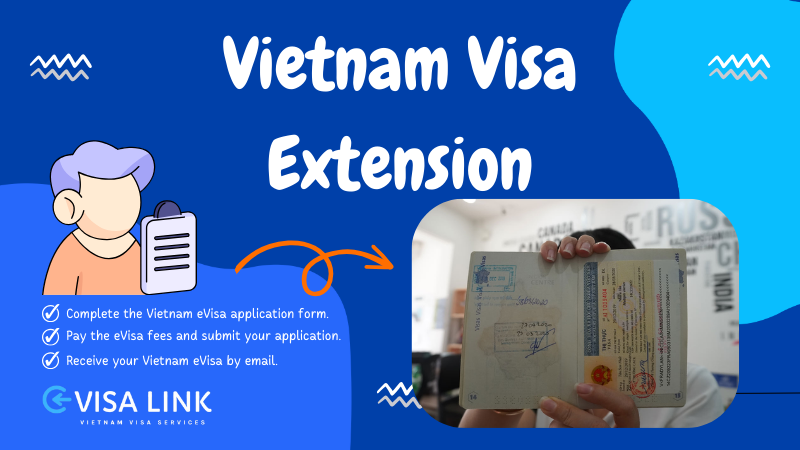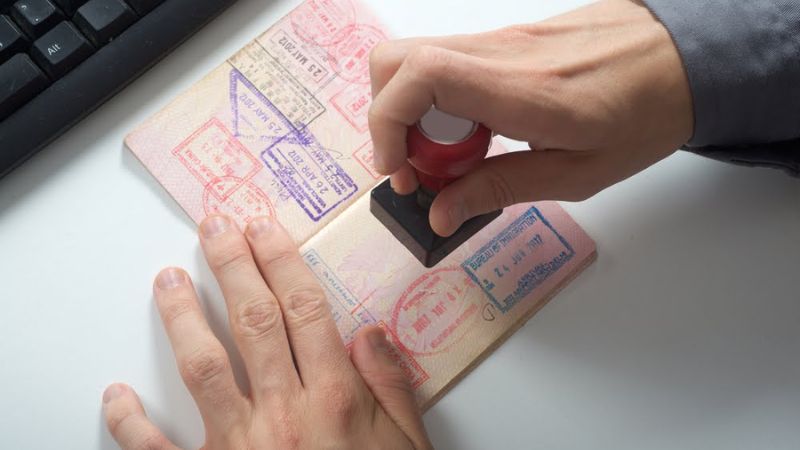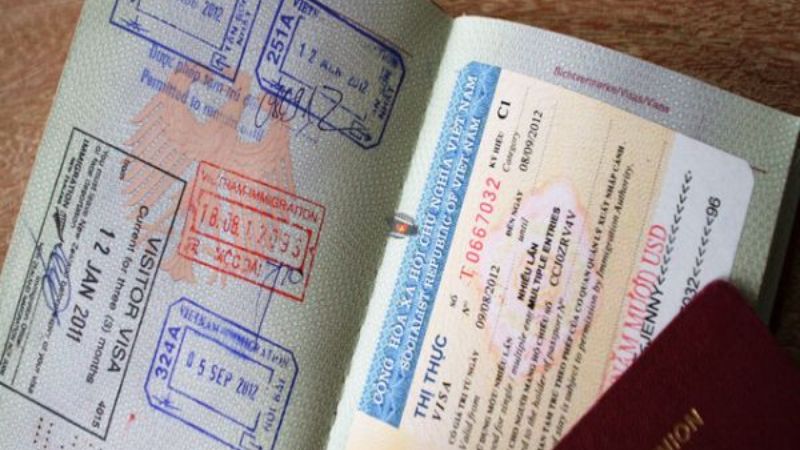If you’re from abroad and want a Vietnam visa extension to stay longer, here are some options. You can either extend or renew your eVisa while you’re in the country, or you can leave and apply for a fresh eVisa. Up next, we’ll break down the difference between visa extension and renewal and let you know when it’s time to grab a new eVisa.
Understanding Vietnam visa extension and renewal
To stay longer in Vietnam without exiting, choose either visa extension or renewal. While both options allow you to stay longer in Vietnam, they involve different procedures.
What does “Vietnam visa extension” mean?
It lets foreigners stay longer in Vietnam without needing a new visa. While your passport gets a stamp for the extended time, there’s no new visa sticker.
And “Vietnam visa renewal”?
It’s for foreigners who want to remain in Vietnam after their visa expires. When you renew, you receive a fresh visa stamp and sticker in your passport.
Extending or renewing your Vietnam visa
Key requirements:
- Have a passport that’s valid for 6 more months.
- Ensure there are at least 2 empty pages in your passport.
Where to apply:
- Hanoi: 44-46 Tran Phu, Ba Dinh District
- Da Nang: 78 Le Loi, Thach Thang, Hai Chuang
- Ho Chi Minh City: 196 Nguyen Thi Minh Khai, Ward 6, District 3
Important note: Remember to apply for your visa extension or renewal at least 7 business days before it expires. This gives enough time for processing.
How to extend your eVisa from outside Vietnam
To extend your stay in Vietnam, you can leave the country, get a new eVisa, and then come back with that new visa. You can get as many visas as you need, and there’s no required wait time outside the country before coming back.
If you’re near Vietnam’s borders with Cambodia, Laos, China, or Thailand, this method could be great for you. It offers a chance to explore other Southeast Asian countries during your trip.
Keep in mind that you should check the visa requirements for each country you plan to visit. Cambodia, Thailand, and Laos all offer electronic visa applications.
If you’re running out of time for a visa extension, think about getting a new eVisa once you’re outside Vietnam. It’s a convenient alternative. It usually takes about a week to get a visa extension at the Immigration Office. To prevent overstaying your Vietnam visa, you can exit the country and reapply for a new one.
How to apply for a new Vietnam eVisa
You can apply for a new Vietnam eVisa from anywhere, just using your smartphone or any electronic device. You don’t must be in your home country to make the request.
To apply, you must still meet Vietnam’s eVisa requirements. Eligible travelers can follow the same 3-step process they did when applying for their original eVisa:
- Complete the Vietnam eVisa application form.
- Pay the eVisa fees and submit your application.
- Receive your Vietnam eVisa by email.
Vietnam processes eVisas quickly; most folks receive theirs in just a few days. Once approved, you can return to Vietnam with your new visa.
Please note that having a visa doesn’t guarantee entry. Vietnam’s border folks will check out your papers and decide if you can come in or not.
How much is it to extend a Vietnam visa?
How much it costs to extend your Vietnam visa depends on where you’re from and how long you want to stay.
Extending your visa is generally cheaper than renewing it since you won’t get a new sticker. You’ll need to pay this fee at the immigration office, and they might ask for cash.
If you’re applying for a new eVisa from outside Vietnam, the fee is the same as your first application. You can easily pay online using your debit or credit card.
Vietnam eVisa update 2023
Starting August 15, 2023, the Vietnam eVisa will now last for 90 days instead of just 30. So, if you apply after this date, you can stay in Vietnam for a full 3 months without renewing your visa. Plus, it’s now a multiple-entry visa! This means you can come and go from Vietnam as often as you like with the same visa.




